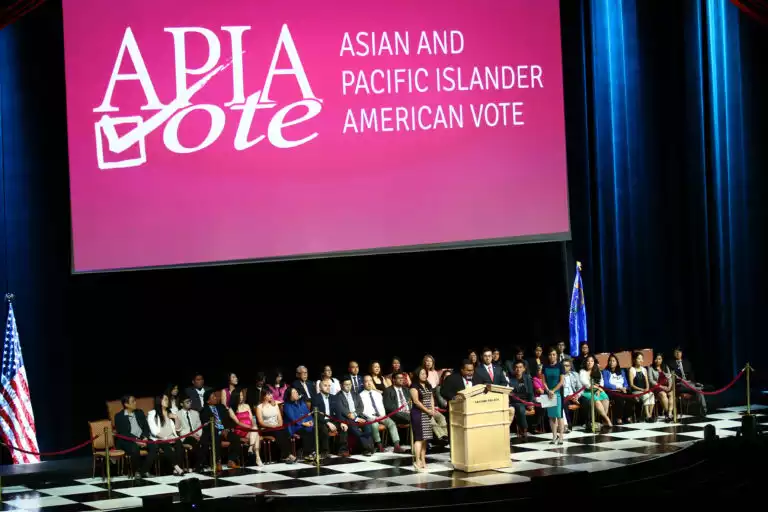
May is Asian American and Native Hawaiian / Pacific Islander Heritage Month. This month offers an opportunity to explore the stories and perspectives of Asian and Native Hawaiian / Pacific Islander Americans (AANHPI). The library aims to include such topics in programming and content throughout the year, and this month serves as a chance to focus our efforts.
In 1978, President Jimmy Carter signed a resolution designating an Asian/Pacific American Heritage Week in May. Subsequent presidents renewed the week every year over the next decade. Congress then expanded the observance from a week to a month, before passing a 1992 law designating a permanent annual Asian/Pacific American Heritage Month. President Joe Biden renamed the month Asian American and Native Hawaiian / Pacific Islander Heritage Month starting with his 2021 proclamation.
This heritage month highlights a broad and diverse group, with members including approximately 50 ethnic groups from dozens of countries. As is the case with other heritage and history months, the effort to unify a multitude of experiences under one umbrella presents both opportunities and limitations. On the one hand, the concept of AANHPI identity offers, to quote journalist Li Zhou, “a unifying banner for a wide range of communities to work together toward a common cause… [and] a sense of shared experience tied to what it’s like to be an immigrant, or part of a family of immigrants, and the xenophobia that different groups have encountered.” Still, the AANHPI umbrella risks collapsing vastly different experiences and perspectives into a misleadingly monolithic bloc. So, how can we think about AANHPI Heritage Month? While there may be no simple answer, we can still work to simultaneously explore the commonalities among communities in this group while allowing for the complexities and differences.
A commitment to honoring the nuances and diversity of the AANHPI community shaped the library’s programs and resources for this month. We created a new resource guide, which highlights sources in our collection, educator tools, and programs. Our programs include a May 12 virtual panel featuring members of Make Us Visible NJ, a coalition of students, parents, educators, and community members, discussing their successful effort to mandate teaching AAPI history in New Jersey public schools. You can also join us on Fridays in May for a film series. The films will be presented in-person at the library:
- May 6: “Minari.” Rated PG-13. 1 hour, 56 minutes.
- May 13: “India Sweets and Spices.” Rated PG-13. 1 hour, 41 minutes.
- May 20: “Yellow Rose”. Rated PG-13. 1 hour, 34 minutes.
- May 27: “Beneath the Banyan Tree.” Rated R. 1 hour, 33 minutes.
And for younger learners, join the library’s Virtual Story Room as staff celebrate and share books created by AANHPI authors and illustrators.
by Madeleine Rosenberg
Photograph courtesy of AAPI Media Center via Creative Commons (CC BY-NC 2.0).
